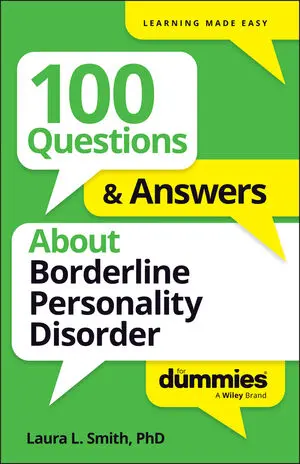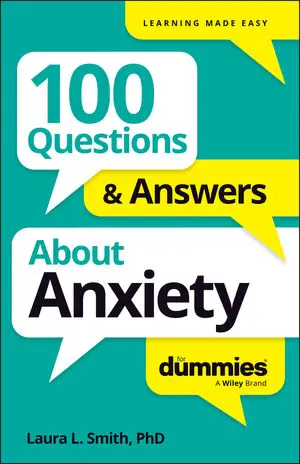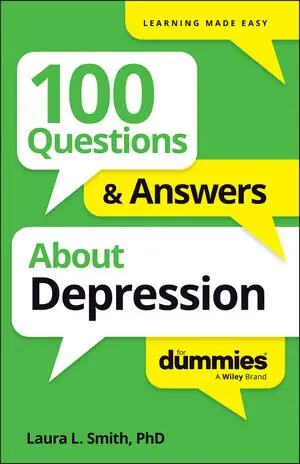This builtin is not currently supported: Animation
- Book & Article Categories

- Collections

- Custom Solutions
 Main Menu
Main MenuBook & Article Categories
 Main Menu
Main MenuBook & Article Categories
Laura L. Smith
Laura L. Smith, Ph.D. (Corrales, New Mexico) is a clinical psychologist who specializes in the assessment and treatment of adults and children with obsessive compulsive disorder, as well as personality disorders, depression, anxiety, ADHD, and learning disorders. She is often asked to provide consultations to attorneys, school districts, and governmental agencies. She presents workshops on cognitive therapy and mental health issues to national and international audiences.
Articles & Books From Laura L. Smith
Everything You Want to Know About Borderline Personality Disorder: A Q&A Guide If you or a loved one are seeking expert advice on borderline personality disorder (BPD), look no further than 100 Questions & Answers About Borderline Personality Disorder For Dummies. With this helpful resource, you'll learn about the symptoms of BPD, explore research-based treatments and therapies, and find out how BPD impacts your relationships with others and yourself.
Everything You Want to Know About Anxiety: A Q&A Guide If you or a loved one are struggling with anxiety, don't worry! 100 Questions & Answers About Anxiety For Dummies is your go-to guide for everything you've been curious about, from what causes anxiety to treatment options and techniques for managing anxiety and challenging anxious thoughts.
Everything You Want to Know About Depression: A Q&A Guide If you or a loved one is experiencing depression, don't despair. 100 Questions & Answers About Depression For Dummies is your go-to guide for understanding what depression really is, why it happens, and what you can do about it. Learn about the types of depression, symptoms and causes, affordable treatment options, and small daily habits that can really help.
Cheat Sheet / Updated 09-08-2023
Depression is a serious medical illness that is quite common but also quite treatable. First, figure out whether you’re just down in the dumps or truly suffering from depression, which can have a lot more symptoms than just feeling blue.If you’re depressed, know where you can find help. And know what you should and should not do to make yourself feel better.
Article / Updated 08-10-2023
Unfortunately, ingesting poison into your system daily for many years takes a toll. We say that not to shame or scare you. Mercifully, we’re keeping some of the gory details limited. The reason it’s important to know about these issues is that it may help give you additional motivation for quitting.The good news is that quitting smoking confers substantial health benefits no matter when you do it.
Recognize narcissists in your life and set healthy boundaries to start healing today Narcissism For Dummies pulls back the curtain on a growing and misunderstood personality. This book digs into dimensions of narcissism, grandiosity, malignancy, and vulnerability, giving you the knowledge and perspective you need to identify narcissists in your life and set limits on unacceptable behavior.
Cheat Sheet / Updated 07-03-2023
Everyone feels special from time to time. Maybe you finally get that promotion you’ve had your eye on at work, or your closest friends surprise you with a birthday bash. But narcissists feel uniquely special all the time and expect to be treated accordingly. This unfounded belief in their own superiority often creates distressing conflict in personal and/or professional relationships.
Article / Updated 05-05-2023
If you are depressed, you want to avoid doing nothing or having the wrong thoughts about it. Here are a few things you should do — or absolutely should not do.
Do get help. You can start with self-help resources like books and the Internet, but you need to see a professional if your mood doesn't lift soon. There is nothing wrong with asking for help.
Cheat Sheet / Updated 10-24-2022
Living with obsessive-compulsive disorder, or OCD, poses challenges, not the least of which is making sure you don’t let your OCD define you. If OCD is part of your life, make the effort to focus on other health needs as well. Learn about what the disorder is and the many forms it takes so that you can start overcoming the disorder.
Article / Updated 09-01-2022
Everyone experiences bad moods from time to time. A bad mood isn't the same thing as depression. Bad moods are transient, and they lift after a while. However, here are a few things you can do for a simple bad mood.
Get moving. Almost any aerobic activity can alleviate a bad mood. Dance, run, or play. Get that heart pounding.







